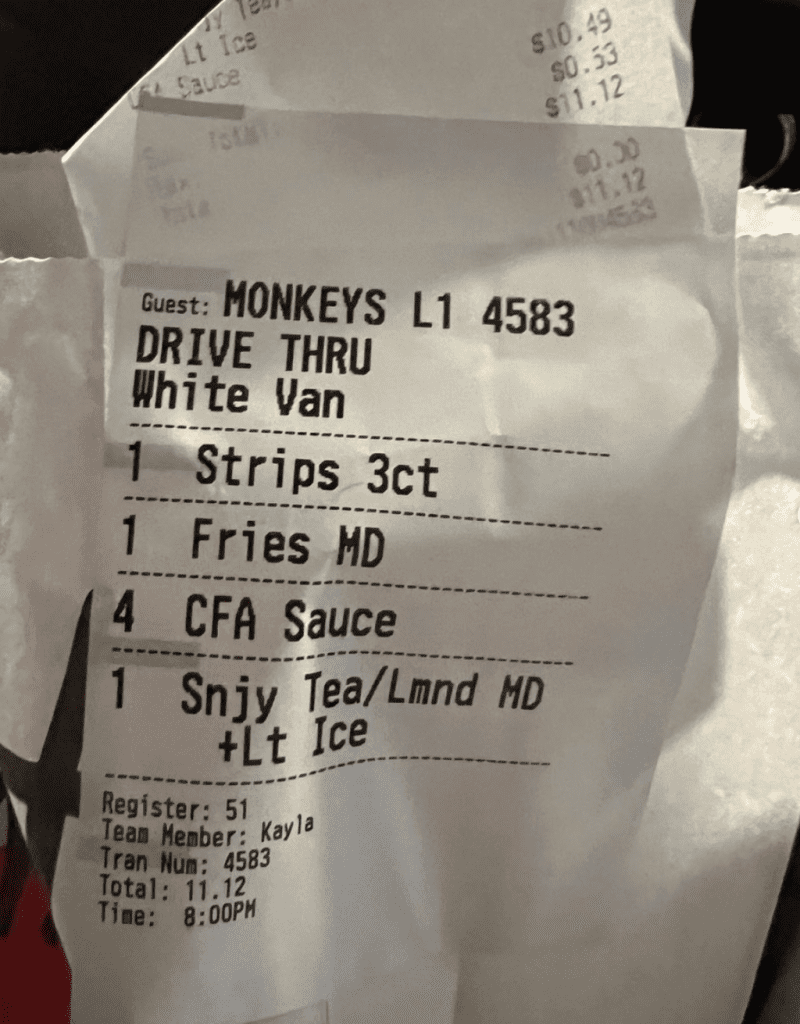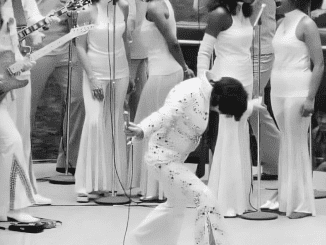A recent visit to a Chick-fil-A branch in Maryland turned into a deeply unsettling experience for Marquise Vanzego, a Black customer, when he was handed his order with a racial slur listed as the “Guest’s Name.” What should have been a routine stop for some chicken strips and fries quickly escalated into a distressing incident that has sparked outrage and debate.

On August 23, Marquise Vanzego visited the LaPlata Chick-fil-A branch in Maryland, expecting nothing more than a quick meal. He placed his order face-to-face at the counter, asking for chicken strips, fries, and a refreshing iced tea/lemonade drink. However, what he received was far from what he anticipated.
As Vanzego waited for his to-go order, he was shocked when an employee called out a name that sounded nothing like his own. The worker referred to him as “Monkeys,” a term that immediately struck a nerve. At first, Vanzego couldn’t believe what he had heard. Could there have been a mistake? Unfortunately, his worst fears were confirmed when he checked the ticket and saw the racial slur written where his name should have been.
Vanzego, a 52-year-old man from Maryland, was left reeling from the encounter. Speaking to TODAY, he described the pain and disbelief he felt in that moment. “Your heart has that little sting in it,” he said. “That’s what it felt like.” The incident brought back memories of other cases of racial profiling and discrimination that he had heard about, making the experience even more traumatic.
As he recounted the event, Vanzego made it clear that there was no room for misunderstanding. He had given his name, “Marquise,” clearly and directly to the employee at the counter. The name “Monkey” was not even close to what he had said. The slur was not only offensive but deeply humiliating, especially considering it occurred in a public place where he had simply gone to enjoy a meal.
Determined to address the situation, Vanzego approached the store’s management to express his outrage. In a video shared on his Instagram page, he documented his conversation with the manager, explaining how hurtful and unacceptable the incident was. He also mentioned that he tried to speak directly with the teenage employee responsible for taking his order, but the manager refused to allow the confrontation.
In a letter to Chick-fil-A, Vanzego expressed his “outrage and disgust,” emphasizing that the incident was not just a simple mistake but a deeply offensive act. He was particularly disturbed by the fact that the store’s owner informed him that the employee, a 17-year-old white male, would not face termination. The employee claimed he had misheard Vanzego and thought he said “Monkey,” a justification that Vanzego found hard to believe. “Have you ever heard of a human being [named] ‘Monkey’?” he asked rhetorically.

While the marketing director for the LaPlata Chick-fil-A branch declined to comment on the incident, Chick-fil-A’s corporate office did release a statement. “This Chick-fil-A is independently franchised and operated,” the statement read. “The franchisee of this restaurant has apologized to the guest. However, this experience does not meet our expectations and is unacceptable.”
Despite the apology, Vanzego is not satisfied with how the situation has been handled. He believes the teenage employee should face consequences for his actions, not just for the sake of accountability but as a learning experience. “I understand, he’s a young man, he’s 17, he’s still learning. But he also needs to know that there are consequences when you do things like that,” Vanzego told TODAY.
Since sharing his story on Instagram, Vanzego has received a mixed response from the public. Some social media users argue that the incident was a simple case of miscommunication, a mistake that should be forgiven given the employee’s age. Others, however, agree with Vanzego, pointing out that racial slurs should never be taken lightly, regardless of the circumstances. They argue that the company should treat the situation with the seriousness it deserves, especially in light of the broader context of racial sensitivity in America.
This incident at Chick-fil-A is not an isolated case. It highlights a larger issue of racial insensitivity and discrimination that can occur in everyday interactions. For many people of color, experiences like Vanzego’s are all too familiar, serving as painful reminders of the systemic racism that still exists in society.
Businesses, particularly those in the service industry, have a responsibility to ensure that all customers are treated with respect and dignity. This includes proper training for employees to prevent such incidents from happening and taking swift, appropriate action when they do occur. The way a company responds to these situations can have a lasting impact on its reputation and customer trust.

The distressing experience of Marquise Vanzego at a Maryland Chick-fil-A serves as a stark reminder of the importance of racial sensitivity in customer service. While some may view the incident as a mere miscommunication, the emotional impact and broader implications cannot be ignored. As businesses navigate the complexities of a diverse society, they must prioritize respect, inclusivity, and accountability to ensure that all customers feel valued and safe.


